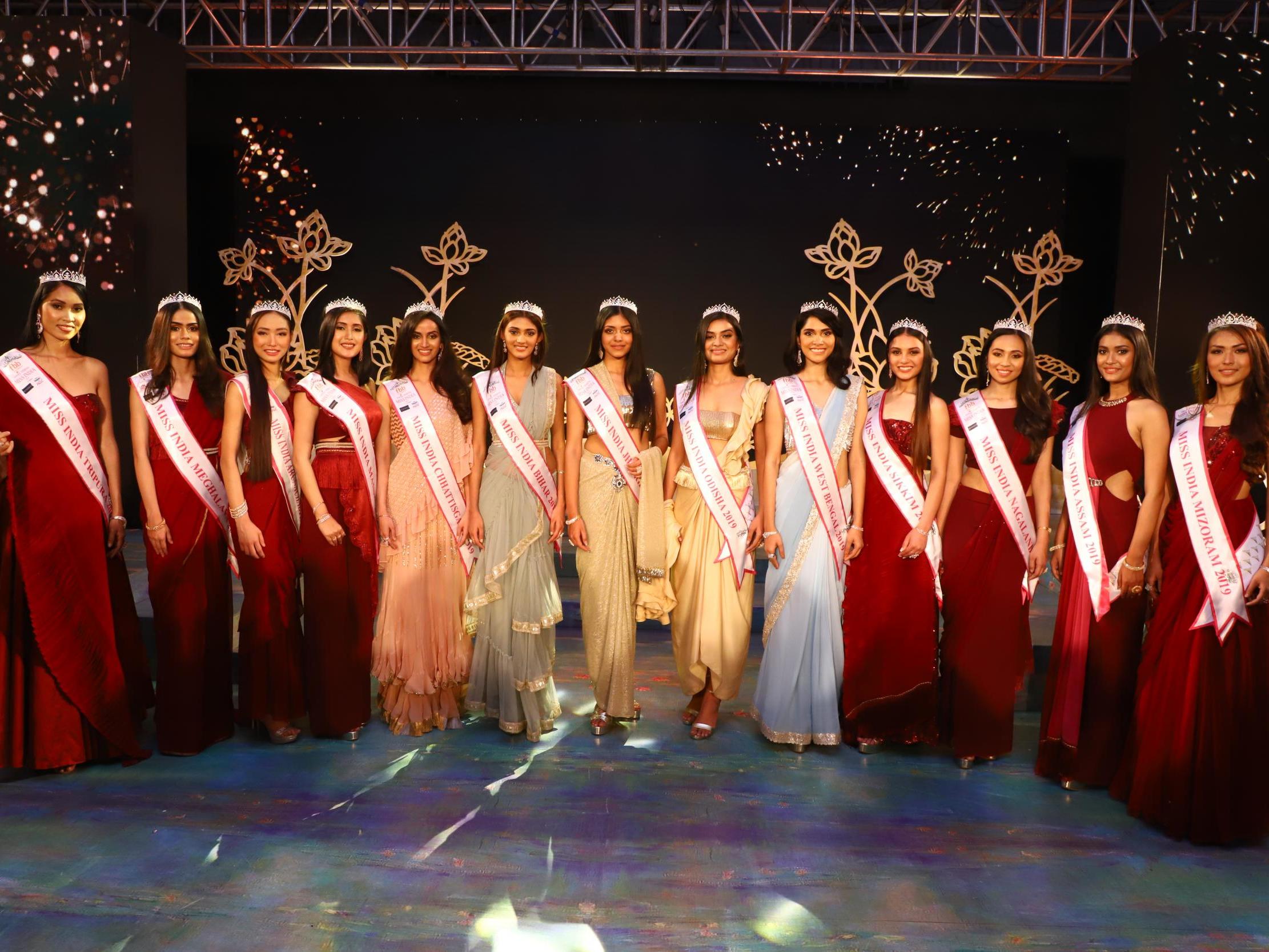The Independent's journalism is supported by our readers. When you purchase through links on our site, we may earn commission.
Miss India pageant criticised over ‘cloned’ contestants with similar fair skin tones
Twitter users accuse the competition judges of perpetuating Eurocentric beauty standards

Your support helps us to tell the story
From reproductive rights to climate change to Big Tech, The Independent is on the ground when the story is developing. Whether it's investigating the financials of Elon Musk's pro-Trump PAC or producing our latest documentary, 'The A Word', which shines a light on the American women fighting for reproductive rights, we know how important it is to parse out the facts from the messaging.
At such a critical moment in US history, we need reporters on the ground. Your donation allows us to keep sending journalists to speak to both sides of the story.
The Independent is trusted by Americans across the entire political spectrum. And unlike many other quality news outlets, we choose not to lock Americans out of our reporting and analysis with paywalls. We believe quality journalism should be available to everyone, paid for by those who can afford it.
Your support makes all the difference.Judges of the Miss India beauty pageant have been accused of choosing “cloned” finalists after a photograph of all the contestants which appeared to show a series of identical, fair-skinned women went viral.
The Times of India published a picture depicting the headshots of the competition's 30 finalists. Several Twitter users have since shared the image and questioned the near identical appearances of the women, with some criticising the judges for choosing women with the “same hair” and the “same skin colour”.
One New Delhi-based user posted the image with the caption: “Miss India contestants. They all have the same hair, and the SAME SKIN COLOUR, and I'm going to hazard a guess that their heights and vital stats will also be similar. So much for India being a 'diverse' country.”
Another posed the question: "What is wrong with this picture?"
Others suggested that Miss USA pageant has more diverse contestants, while another said that contests like Miss India perpetuate the “same Eurocentric beauty standards” of fair skinned women as the ideal.
Anshika Singh, who competed to become a finalist in Miss India 2018, shared her experience of the competition on Twitter.
"I was one of the state finalists last year and the girl who won was the fairest,” she wrote. “It really be like that [sic]."
Another user shared a photograph she posted last year of the 2018 contestants who she described as “clones”.
“My tweet from last year nothing changes. The future is here. We will all be clones and look like photocopies of each other, [sic]” she tweeted.
The pageant's grooming expert Shamita Singha told the BBC that the pictures published in the Times of India needed to be retouched as the contestants looked "like plastic".
Singha stated that she believed the newspaper had edited the photographs in their rush to print, changing the women's appearances and homogenising their skin tones in the process, despite the publication being told not to alter skin tone.
She told the publication: "This is not the skin tones of the actual pictures."
"These are just some of our girls in the last year," she added. "Everyone's skin colour is kept as is."
Actor Priyanka Chopra and Bollywood icon Aishwarya Rai have previously been crowned Miss India.
However. the controversy over skin lightening has been a long and contentious issue across the world.
According to a report released in June 2017 by the research firm Global Industry Analysts, global spending on skin lightening was projected to triple to US $31.2bn by 2024.
The criticism levied towards the Miss India competition comes weeks after black women wore the crowns of all three major US pageants simultaneously for the first time.
Cheslie Kryst, 28, won the Miss USA contest, and Kaliegh Garris, 18, won Miss Teen USA.
They joined Nia Franklin, 25, who was crowned as the 2019 Miss America in September.
The Independent has contacted Feminina Miss India, the organization that hosts the competition, for comment.
Join our commenting forum
Join thought-provoking conversations, follow other Independent readers and see their replies
Comments